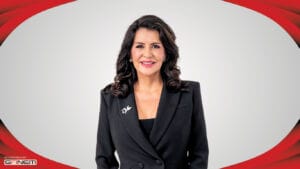A private-sector initiative has secured more than 11 million pieces of Personal Protective Equipment for use by agencies throughout Arizona on the front lines of the COVID-19 pandemic.
The Arizona PPE Initiative is a private-sector philanthropic initiative led by two prominent local business leaders who have established a new international supply chain. Shipments of PPE through this initiative have been delivered this week by the Arizona National Guard, just as the state is enduring a rise in COVID-19 cases and a major effort continues to ensure Arizonans are wearing masks in public.
Like many states, Arizona faces a shortage of PPE, just as it is peaking of COVID-19 related hospitalizations. Keeping the State’s brave health care professionals, first responders and tribal nations safe is a critical priority. With exhaustive PPE order competition taking place between countries, states and even cities, there has been no transparent supply chain to meet this critical need.
Taking direct action, concerned Arizona residents Sharon Harper and Marco Lopez banded together to create a safe, reliable resource chain to supply desperately needed PPE for their own and other states.
“Many of my family members, including my husband and daughter, have medical backgrounds. Consequently, it was heartbreaking for me to hear stories of how they did not have adequate equipment to deal with the COVID-19 crisis,” said Harper, Chairman & CEO of Plaza Companies and one of the founders of the initiative. “Additionally, with my company owning and operating commercial and medical office facilities and senior living communities, the shortage of protective gear and the associated risk was alarming. I am very pleased we were able to make the connections needed to start the initiative and get this badly needed medical equipment to the front lines.”
To date, more than 11 million pieces of PPE have been procured through this initiative and more than 100 hospitals, senior living communities, healthcare facilities, universities, nonprofit community service organizations, fire departments, law enforcement agencies and other organizations are the beneficiaries. The PPE includes N95 masks, isolation gowns, goggles, surgical masks, nitrile gloves and face shields.
“This is an unprecedented humanitarian crisis and it was critical that we rise to the challenge. I am fortunate to have the experience and network from my career in public and private service to be able to step in to help support our first responders, health care workers and Native nations,” said Lopez, former Mayor of Nogales, Arizona, former Chief of Staff for United States Customs and Border Protection and Chief Executive of Intermestic Partners. “This PPE will benefit healthcare workers in both rural and urban areas and in some of the hardest hit communities in Arizona. I am hopeful this will become a model for how to respond to such a crisis and will help ensure we have the equipment our first responders need to overcome it.”
Who is involved in the Arizona PPE Initiative?
The Arizona PPE Initiative was organized by Sharon Harper along with Marco Lopez. Robert Anderson, owner and Chief Executive Officer of Prisma Graphics, has contributed HIPPA warehouse facilities along with essential logistics software to track and manage what amounts to approximately six tons of equipment.
Through a network of global relations, His Royal Highness, Mohammed bin Zayed, defacto ruler of the UAE, and his son, Sheikh Saeed Al Maktoum, have positioned Emirates Specialized Trading Agencies (ESTA) to assist in procuring quality, inspected and reliable PPE from other nations to fulfill the needs of hospitals, first responders and tribal nations.
To ensure the quality and reliability of PPE, ESTA has employed two of the most highly respected inspection and certification companies in the world — Swiss SGS and German TUV, both leaders in testing, verification and safety inspection.
All product imported by the Arizona PPE initiative must pass rigorous testing and inspection before it leaves its source country.
How did the PPE initiative come together?
In 2017, Mexico City was struck by a 7.1 earthquake that killed 370 people. Harper and Lopez teamed up in a humanitarian effort for that disaster and delivered a 737 plane filled with medical supplies to the affected areas.
In 2020, Harper and Lopez became alarmed with the shortage of PPE during the COVID-19 pandemic. For Harper it is a drive to do what other groups have failed to do — ensuring the safety of frontline healthcare workers, including her daughter who is a physician with Banner Health University Medical Center.
Lopez and Harper both enjoy extensive international business and personal connections. In late March they started an effort to secure 31,000 testing swabs for COVID-19 testing at Arizona State University BioDesign Institute as well as 100,000 N95 masks for Arizona hospitals. It became immediately apparent that the need for PPE was significantly greater than their initial efforts could have anticipated.
Lopez, through his international relationships, connected with his New York-based friend Jared Dubey, who was experiencing similar frustration in the failed efforts of large organizations to procure PPE. Jared activated his colleagues at Emirates Specialized Trading Agencies to find a solution. In regular times, ESTA is charged with helping the United Arab Emirates and its allies to obtain goods and services from sources throughout the world. In response to requests arising from the pandemic, the agency’s focus shifted to sourcing high-quality PPE.
What logistical problems is the Initiative overcoming on behalf of Arizona health care workers, first responders and tribal communities?
There are several significant issues involved in getting PPE to the front lines:
• There are numerous restrictions being imposed by manufacturers on how they sell PPE and to whom. Additionally, counterfeiting of PPE is an endemic problem.
• Sudden changes in criteria, inspections, customs approval, pricing, and factory closings (a number of factories were white lined in one day alone), combined with severe competition with cash offers at factory doors, are causing significant insecurities for quality and delivery throughout the world.
• Quality control of PPE is being compromised in an effort to meet the world’s growing PPE demand as quickly as possible. Therefore a large number of products are not medical grade or are expired or damaged.
• Packaging the PPE safely and ensuring it gets to its final destination in the United States is also a major problem as couriers are not guaranteeing timeliness. Customs agencies around the world are experiencing backlogs as trade laws and regulations are changing by the minute.
• Purchasing PPE in the United States has become a competitive process in many cases, pitting local, state and federal agencies against each other and resulting in significant cost increases.
• Distribution of PPE has been disrupted as supply chains and transportation systems have been compromised by the myriad challenges raised by the COVID-19 crisis.
The Arizona PPE Initiative created a new pipeline for PPE that provides skilled oversight across the global sourcing process. It has engaged reputable PPE suppliers to deliver vetted equipment that complies with industry requirements.
What is the process for getting PPE to Arizona?
Once the PPE is sourced from certified manufacturers across the globe, the PPE is inspected and flown to the United Arab Emirates. There, UAE officials oversee the process of quality checks and controls — including safe packaging and preparing for shipment and delivery in a way that best preserves the equipment for safe use. Once ready, the PPE is sent to Phoenix for local distribution. In Phoenix, the PPE will be transported to Prisma Graphics’ HIPPA-compliant warehouse near the airport, where local transportation overseen by the Arizona National Guard will deploy the PPE to agencies throughout the state.
ESTA is serving as the UAE liaison to supply Arizona with PPE with coordination support provided by its in-country team. Furthermore, ESTA are providing packaging and quality control checks before the PPE is flown to Arizona. Sheikh Saeed bin Maktoum has been personally supportive of the initiative and has been instrumental in helping it come to fruition. We are incredibly grateful to everyone in the UAE who has made this transformative and critical initiative possible.
What Arizona entities will benefit from this initiative?
A significant list of more than 100 of Arizona’s hospital groups, medical centers, police, fire departments and other agencies have placed orders through this initiative.




